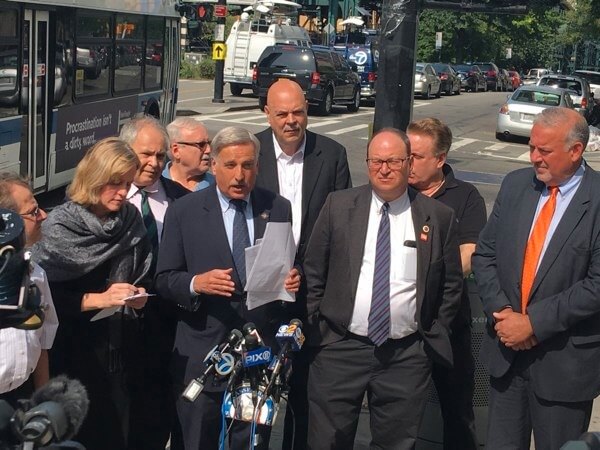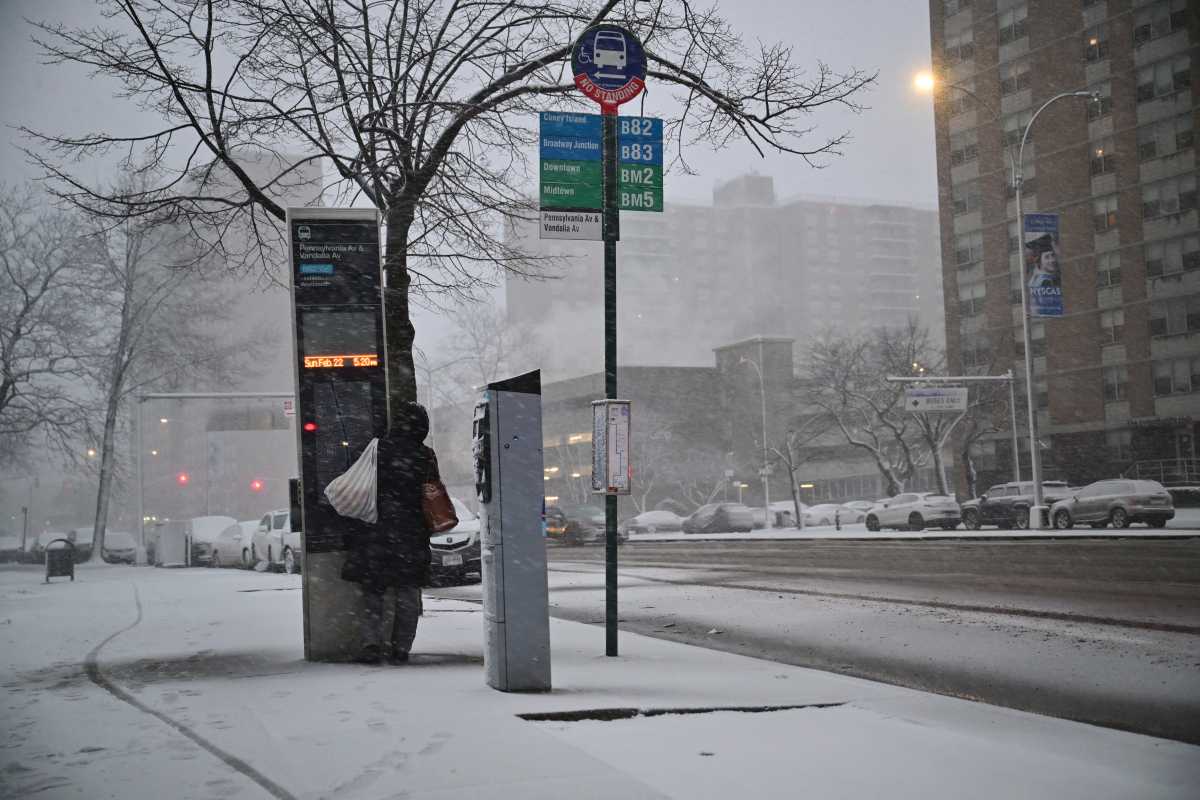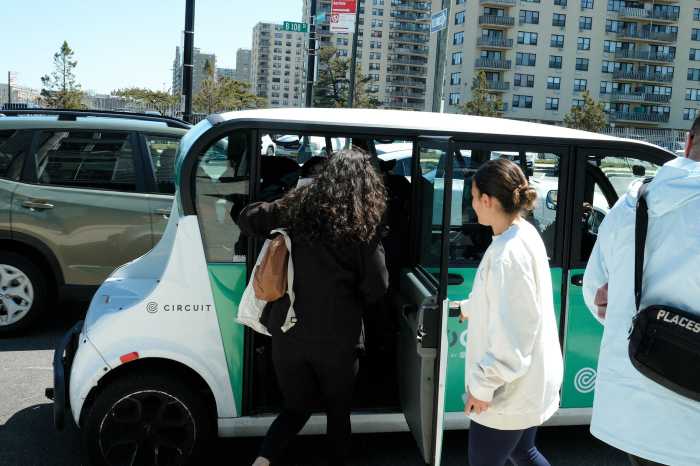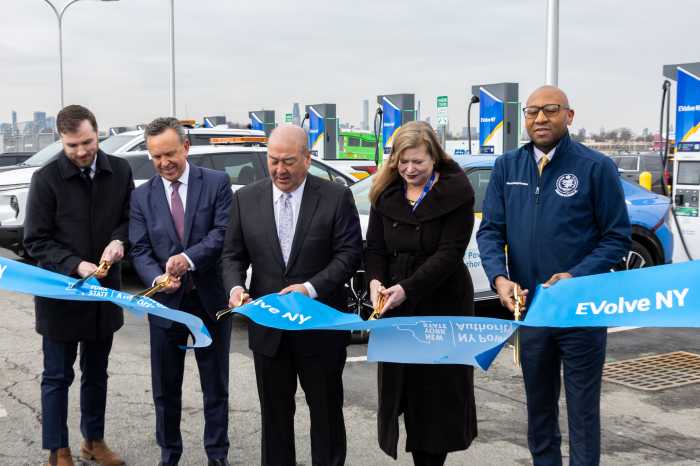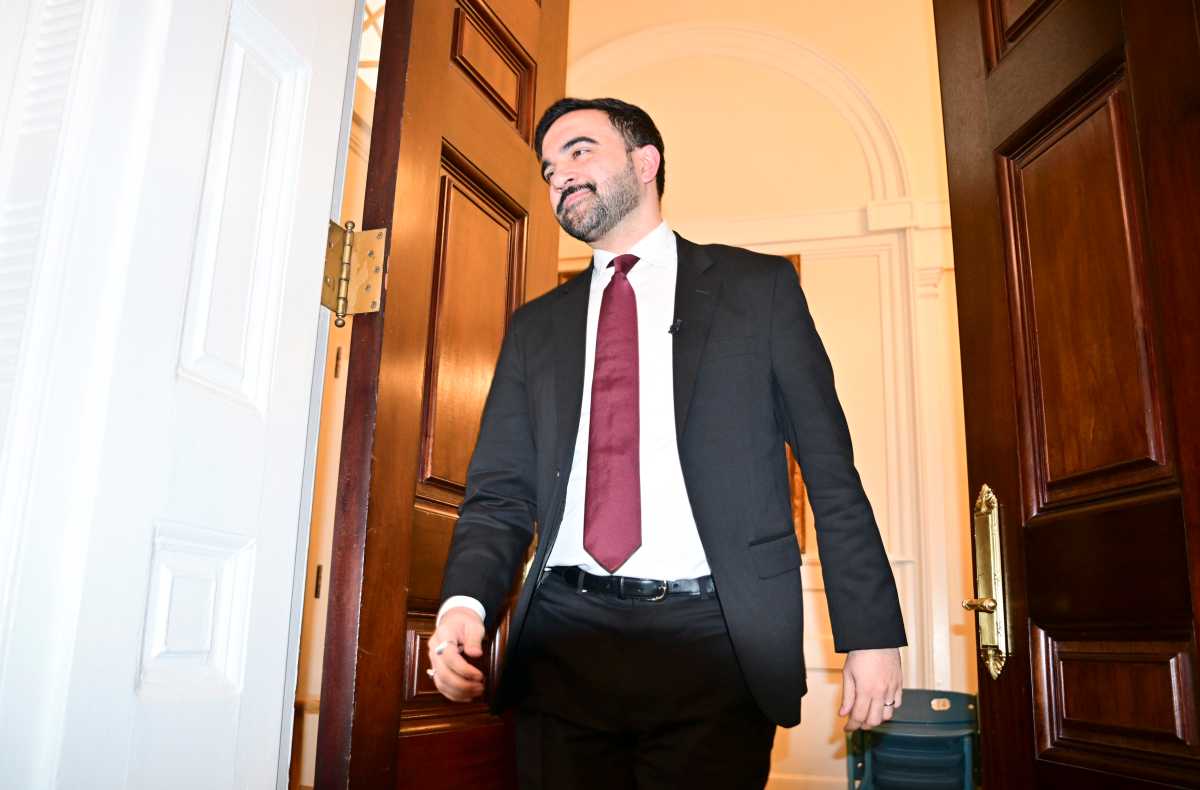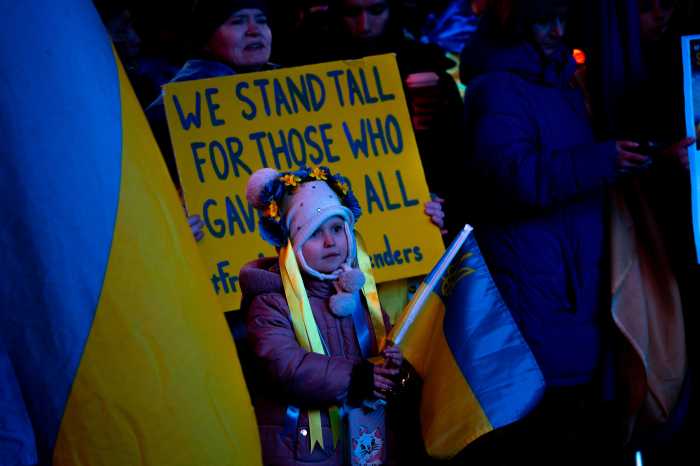By Mark Hallum
Opposition to new tolls on free East River bridges was loud and clear from Queens elected officials Sunday in support of working families in the outer boroughs.
The rally at the foot of the Queensborough Bridge came two weeks after Gov. Andrew Cuomo proposed congestion pricing as a means of funding the MTA and critical upgrades to infrastructure in the subway, prone to system-wide meltdowns. The protest was not directed against the MTA, but any new tolling on bridges that have been free since 1911.
Many of the lawmakers in attendance represented eastern Queens, known for scant public transportation options, and economic leaders from the borough.
“Tolling the East River bridges would be devastating for Queens, Brooklyn and Long Island residents” state Assemblyman David Weprin (D-Fresh Meadows) said. “The people who rely on these bridges are a diverse group of New Yorkers who are trying to make affordable choices in this city and any future transportation plan for New York must take into the account the needs of outer borough residents.”
Borough President Melinda Katz said tolls on East River bridges would isolate Queens from the rest of the city, economically, and cut New Yorkers off from one another.
“It would landlock our borough,” Katz said. “Just as it’s hard to justify any fare increase for riders, it’s also hard to justify a bridge-and-tunnel toll that isn’t coupled with specific increases in service. We are one city, and it is fundamentally unfair to charge residents a fee to travel within one city, from one part of the city to another. It is certainly unfair to the families who live in the transit desert of Queens.”
City Councilman Barry Grodenchik (D-Oakland Gardens) claimed tolls on formerly free bridges would have the biggest impact on Queens residents and create an unfair burden considering how little public transportation is offered through much of the borough.
“Tolling the free East River bridges is a misguided proposal that is unacceptable to the residents of eastern Queens,” Grodenchik said. “These tolls are, in fact, a regressive tax on people who have limited public transportation options and would impose an unjustifiable financial burden on Queens residents, especially commuters, who are already struggling with rising costs of living. It is time for the MTA to get its fiscal house in order before further burdening area residents.”
According to the Thomas Grech, executive director of the Queens Chamber of Commerce, making transportation more costly between boroughs would only further drive enterprising individuals out of the city, altogether.
“Doing business today in NYC is tougher than ever,” Grech said. “Putting tolls on the East River Bridges will be just another incentive for firms to think about relocating out of New York.”
Kevin Forrestal, president of the Queens Civic Congress, explained that many people use free East River bridges as an alternative to the subway for a variety of reasons, including disabilities and financial disenfranchisement.
“There is a [misconception] that those who drive into Manhattan and back out do so for selfish reasons,” Forrestal said. “While that may be true for some, most do so for valid reasons. There are many such reasons, including limited physical disabilities that make navigating stairs impossible, a need to carry tools or other items especially when platforms and cars are overcrowded, being ill and seeking specialty care at tertiary health centers, as well as many others. Most of those who utilize our East River crossings are lower- or middle-income residents who have seen their buying power reduced over the last decade. They should not be burdened by imposing tolls.”
Cuomo’s congestion pricing proposal sparked controversy despite the murky, unformed details of the plan, but Jon Weinstein, a spokesman for Cuomo’s office, said the best interests of the outer boroughs would be kept in mind for any further developments.
“This administration has been working with interested parties and the Legislature to develop a proposal that would not negatively impact the outer-boroughs. Bottom line – clearly congestion pricing is an idea whose time has come and we need to be discussing all options so we can invest in our system long-term.”
Former Mayor Michael Bloomberg once made a similar proposal for congestion pricing, which was widely criticized and ultimately killed altogether by the state government.
Reach reporter Mark Hallum by e-mail at mhall

